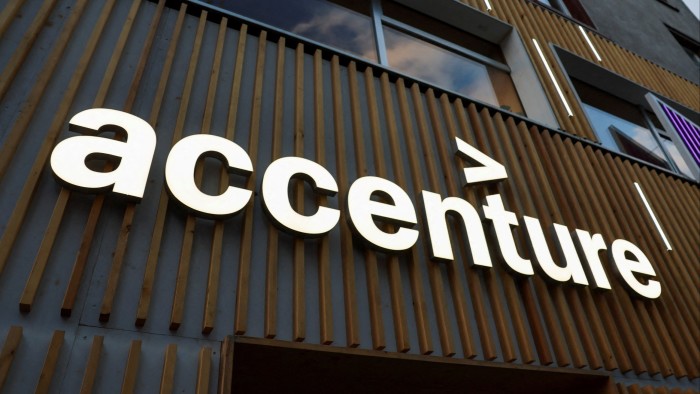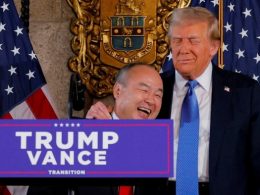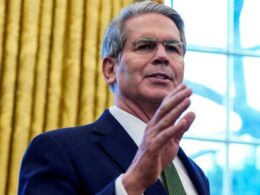Unlock the White House Watch newsletter for free
Your guide to what the 2024 US election means for Washington and the world
Consulting firms have offered to cut back US government contracts, limit price rises and shift to performance-based fees, after the Trump administration demanded they prove taxpayers were getting value for money.
Three of the 10 large consultancies that faced a Monday evening deadline to submit money-saving proposals offered a menu of options that could cut at least $15bn of federal spending over the coming years, according to a person familiar with the submissions, with the remainder to be calculated over the coming days.
Accenture, Deloitte, Booz Allen Hamilton and IBM were among contractors targeted in the “consultant spend review” by the General Services Administration, which helps co-ordinate government procurement.
Several groups offered to bring down the maximum value of some ongoing federal contracts and cut pre-agreed price rises on long-running outsourcing work, according to people familiar with the proposals. One firm alone identified $12bn in savings, one of the people said.
The efficiencies — identified through a co-operative process — come alongside Elon Musk’s effort to cut government spending, with his so-called Department of Government Efficiency (Doge) firing tens of thousands of government workers in recent weeks and unilaterally ripping up contracts with third-party providers. Many of Doge’s efforts have been reversed by federal courts.
The savings proposed by the consulting firms in the responses to the GSA included more than just immediate cuts. Several consultancies floated other ideas to improve the efficiency of government procurement, including gaining benefits of scale by introducing projects that cut across departments.
At least one group recommended that consultants engaged in IT services should be allowed to buy software and hardware directly from vendors, rather than having to go through government-approved intermediaries, replacing a costly mark-up with the opportunity for bulk savings.
In some cases, the submissions tapped into a wishlist of procurement reforms long desired by the consulting profession. In some, they amounted to implicit criticism of how rivals price and operate their government contracts.
“They are starting to expose each other,” said one person who had seen the earliest submissions. “They are actually starting to identify how their competitors could save money.”
The GSA’s review comes as Musk increasingly draws attention to what he sees as egregious spending on consultants.
Earlier this month, Doge said it had dissolved the Federal Consulting Group, a branch of the interior department it claimed was “where one government department charges another to broker consulting contracts”.
GSA’s effort is aligned with Doge’s aims but run separately by Josh Gruenbaum, a former Moelis banker and director at KKR, who was appointed by President Donald Trump as commissioner of the Federal Acquisition Service, a GSA division.
The negotiations were characterised by officials within the agency as taking place in “good faith” and conducted by people with direct experience of the industry. They appear to have been less adversarial than Doge’s approach in other branches of government.
David Berteau, chief executive of the Professional Services Council, which counts eight of the 10 targeted consulting firms among its members, said he expected the government to look for a “good faith effort” to align with its priorities and that the groups could “propose cuts that do the least harm, reductions that save the most, and actions that preserve the most capability for the future”.
In a statement to the Financial Times, Gruenbaum said it was “encouraging that industry is leaning in” and identifying “savings opportunities in the government’s excessive spend with consulting firms”.
He added that “restructuring contracts to be overwhelmingly outcome- based and consolidating them government-wide . . . will leverage the entire federal wallet and deliver significant discounts for the government and a better value for the taxpayers”.
A spokesperson for Leidos, one of the targeted consultancies, said it sent in “a detailed set of options for meeting the administration’s goal of making the US government more efficient and cost effective” and added: “We understand the importance of this effort and are bringing forward bold ideas to help.”
A GSA official previously told the FT the agency planned to expand its cost-saving blitz to smaller consulting firms once the process with the initial 10 was complete.
The agency is also looking for savings beyond the consulting profession, and a person familiar with GSA’s efforts said it had identified almost $7bn in savings by cutting more than 2,100 contracts overall. Doge claims the Trump administration found $140bn in savings altogether, although independent researchers have only been able to verify a fraction of that figure.
Source link









